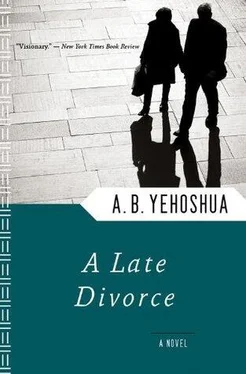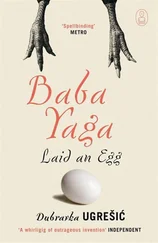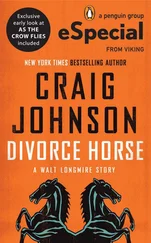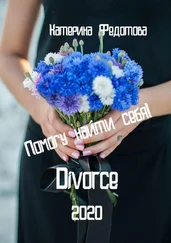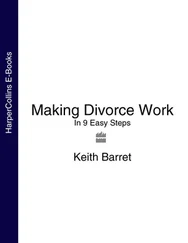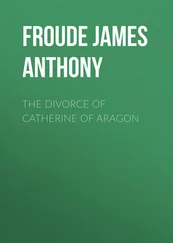I took Gaddi for a tour of the train. We walked to the last car and, from a rattling passage by the rear window, watched the unweeded rails slowly receding. The boy stood silently by me, a softer edition of Kedmi but terribly earnest, the locomotive still in one hand and the other on his chest. He stood glued to the window. I took out the document that Kedmi had given me and leafed through it. Their divorce agreement. Brutal legal phraseology spelled here and there by sentimental cliches. The last page enumerated the joint property to be divided. With what perverse pleasure Kedmi had listed all the furniture, inventoried everything, estimated its value down to the last cent. I shook with anger. Where is Dina now? What am I going to do with her?
It took us a ridiculous hour to reach Acre. At the station we found a taxi and drove to the rabbinate building in the walled seaport, not far from the old citadel. “Here you’ll leave it to me,’’ announced father with a sudden show of firmness. “It won’t take me long.” And so we waited in the taxi, bus stops and felafel stands around us, old stones from the citadel piled on the curb. The driver got out to clean the windshield. Gaddi drove his locomotive back and forth in the front seat. Ya’el sat huddled next to me with a guilty look on her face. Does she ever actually think? Think, Ya’el, think, we used to beg her whenever she would suddenly go blank.
“You know… he’s going to have a baby over there… with that woman…’’
“Yes. He told me.”
“Have you told Tsvi?”
“He knows.”
“What did he say?”
“He just laughed.”
“He did? Why didn’t he come with us today? I phoned him last night but got no answer.”
“I spoke to him.”
“Why didn’t he come with us?”
“I don’t know. Maybe he doesn’t want them to get divorced. He likes having their apartment…” She didn’t finish the thought. But it was Kedmi’s anyway, not hers.
“Is that what he said?”
“No. All he said was that he didn’t like hospitals.”
“I couldn’t sleep last night. I kept tossing in bed. That baby slays me…. Who would have thought it of him?”
She didn’t understand, though. Her eyes grew large with wonder.
“What makes you say that?”
I shook with anger again. My lost time. I missed Jerusalem as though it were years since I had last seen it. Father was taking his time. The driver had gone to sit in a nearby café. I glanced at the vaults of the citadel, at a strip of sea on the horizon. I opened the car door.
“Come on, Gaddi. I’ll show you something.”
We strode along the seawall until we came to some steps that zigzagged down to a recessed apse at one end of it. A dry, gray day, with a hot desert wind from the east. The U-shaped bay was a blur, the Carmel range a purple mass. I grasped Gaddi’s fat hand to keep him from slipping on the guttered stones, the locomotive still under his arm, explaining to him what we saw and showing him the hills across the water where he lived, although he preferred looking at a column of flame rising from the oil refinery on the bay to flicker in the foul wind.
1799. From a hillock nearby Napoleon gazed down on these walls, reached out his hand to them. Had he wished to take them or merely to comprehend, to palpate the pulsebeat of history with his sensitive touch? And then he retreated. This was not the place. Never mind. It was through this trivial defeat that he came to know himself, his true powers, the mission entrusted him. That he found the necessary point of connection. The last years of the eighteenth century were where I must begin.
I wanted to he myself again but could not. The boy was in the way. Scrutinizing me. My trampled time, my papers left by my books. In far, clear Jerusalem. Clear thought. Hard light. Dina in its streets, free with our money, free with strange men. And you, stranded high and dry here.
We descended the wall. Ya’el was; still in the taxi, eyes shut, arms folded on her chest. The driver looked at us.
“Father isn’t back yet? What’s going on in there!”
I climbed the steps of the rabbinate building. A large, long hallway with narrow doors. From somewhere came a sound of muffled sobs. Father’s? In a fit I opened one of the doors. A dark young woman sat at a bare desk in a room that made the sobs resound like a weird echo chamber. She rose to speak to me as though I were an office clerk, but I beat a hasty retreat, letting go of the door, which slammed behind me. At the end of the corridor, through another door, I saw father’s head beneath a black skullcap. Two young, dark-bearded rabbis sat on either side of him, evidently explaining something to him while he nodded his agreement. I collapsed onto a bench in the hallway, my head in my hands. An endless day. Two black-suited men climbed the stairs with a folded stretcher, threw it on the floor at my feet, and continued up another flight. At last father emerged, seen out by the rabbis, to whom he hadn’t stopped nodding. He bowed his head and shook their hands with submissive gratitude. “Everything will be all right, Professor Kaminka,” they assured him. I rose quickly and started down the stairs with him hurrying after me while removing the skullcap and sticking it into his pocket.
“Really, they’re being most considerate. They’ll bring the rabbinical court to the hospital. They’ll arrange it with the management, even though it’s Passover eve.”
The exit below was blocked by the yawning doors of a hearse.
With an angry movement I slammed them shut. It was already half past three. We were late. The taxi drove to the hospital and left us at the front gate. Suddenly I had second thoughts: shouldn’t Gaddi wait for us outside? But father insisted.
“Why shouldn’t he come? She’ll be happy to see him. He’s a big boy already and can understand.”
Did he want him there to be a buffer? We started down the paved path among the lawns and cottages, the sea glinting beyond them, the strong dry wind at our backs. My last visit here was late last autumn. I had lectured to some history teachers at a local regional high school and stopped off to see her on my way back. It was dusk when I arrived. She was thrilled by my unexpected appearance. She was as lucid as could be, hardly talked about herself, wanted only to hear about me, even asked about the lecture I had given. I felt that she knew what was going on in my mind, in my life. I had already been told of her unforeseen improvement, which hadn’t surprised me at all, because I had never really believed in her illness. When it began to get dark she suggested that I stay the night and even went to see if there was a room, but I was in a hurry to get back to Jerusalem. In the end she walked me in the darkness to the gate. Horatio ran wide circles around us, coming back to us each time to sniff our footprints, lick my shoes, tug at their laces with his teeth. And she walked by my side, heavy but erect, stopping now and then to look at me, wanting something from me that I never could give. We didn’t argue or quarrel even once. She was unusually tender, thoughtful, uncomplaining, unaccusing. We were standing by the gate when she first told me that she had been getting mail from father. She took out a rustling packet of envelopes from her handbag and showed them to me without letting me hold them. What does he want? I asked anxiously. A divorce, she said. A weak light shone from the gatekeeper’s hut. The dog passed under the barrier and stood in the middle of the road with his ears back and his tail wagging softly, drawn bow-like by the sounds of the night, the white fields of cotton, a distant bark. Now and then he glanced our way as though following our conversation from afar.
I began talking in favor of it, enthusiastically even. It’s high time. It should have been done long ago, you’ve just enmeshed each other more and more. She heard me out in silence, her profile turned to me, until she interrupted coldly:
Читать дальше
